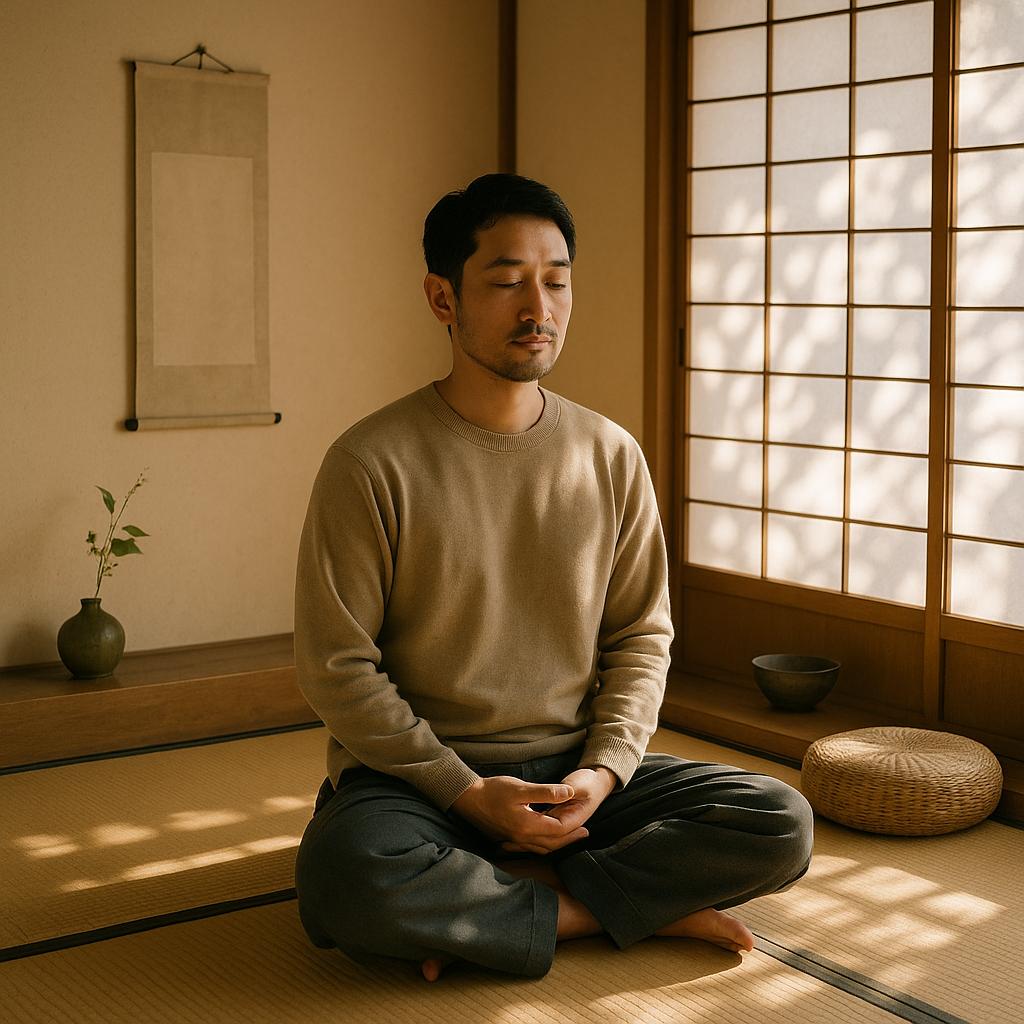A Zen practitioner is someone who actively engages in the core practices of Zen Buddhism—especially meditation, mindfulness, and simple living—to cultivate insight, peace, and presence in everyday life. Whether you’re just curious or considering Zen for yourself, understanding what it truly means to be a Zen practitioner can be transformative.
Zen, rooted in Mahayana Buddhism, is unique for its focus on direct experience, rather than just belief or theory. Knowing what a Zen practitioner actually does—and how anyone can start—helps demystify Zen and offers practical steps for those seeking more clarity, balance, and meaning.

In this article, we’ll answer the key questions:
- What does a Zen practitioner do daily?
- What makes Zen unique?
- Can anyone become a Zen practitioner?
- How do you begin?
- How does Zen fit into modern life?
What is a Zen Practitioner?
A Zen practitioner is a person dedicated to living the teachings of Zen Buddhism through regular meditation (zazen), mindfulness in daily life, and participation in Zen community or retreats. Unlike some religious traditions, Zen is less about dogma and more about practice—showing up, sitting still, and being present.
Key qualities of a Zen practitioner include:
- Commitment to daily or regular meditation
- Mindful awareness during everyday tasks
- Openness, curiosity, and a “beginner’s mind” (shoshin)
- Simplicity, patience, and compassion
Zen practitioners can be monks, laypeople, or anyone interested in the Zen way—there are no barriers to entry, and you don’t need to “convert” to start practicing (Rochester Zen Center, 2024).
Core Practices of a Zen Practitioner
Zazen (Seated Meditation)
Zazen—or “seated meditation”—is the foundation of Zen practice. Most Zen practitioners meditate daily, either at home or in a group.
How zazen works:
- Sit upright, cross-legged (on a cushion or chair), with hands in a specific mudra
- Keep your eyes half-open, resting on the floor
- Focus on your breath or simply “just sit” (shikantaza), letting thoughts come and go
- In some schools (Rinzai), practitioners focus on a koan—a paradoxical question or statement to spark insight (Tricycle, 2024)
Zazen trains the mind in concentration, awareness, and letting go of attachment—skills that naturally extend to the rest of life.
Mindfulness in Daily Life (Everyday Zen)
Zen practice doesn’t stop when you leave the meditation cushion. A Zen practitioner brings mindfulness to every action:
- Eating slowly, tasting each bite
- Walking with attention to each step
- Cleaning, working, or listening with full presence
- Doing one thing at a time (“issoku”)
This is sometimes called “everyday Zen,” making ordinary life the main arena for practice (The Denizen, 2024).
Sangha and Sesshin (Community & Retreat)
Most Zen practitioners participate in a sangha (practice community) for shared meditation, guidance, and mutual support.
- Sesshin: Intensive meditation retreats, sometimes lasting several days, deepen your experience through periods of silence, chanting, work, and group meals (Wikipedia, Sesshin)
Community is not required but can accelerate your practice and provide accountability.
Zen Practitioner vs. Zen Master
A Zen practitioner is anyone who engages in Zen practice, regardless of experience or credentials.
A Zen master is a teacher authorized to guide others, usually after many years of training and formal recognition. Most people are practitioners, not masters (WellMeRight, 2024).
Zen Practice: Religious or Secular?
While Zen grew out of Buddhism, many modern practitioners approach Zen as a practice or philosophy rather than a formal religion. Rituals like chanting and bowing are used as tools to focus the mind, not requirements for belief (The Guardian, 2024).
How to Become a Zen Practitioner
Anyone can start practicing Zen:
- Learn basic zazen (through books, online videos, or local centers)
- Begin with a few minutes of meditation daily
- Incorporate mindfulness into simple tasks
- Visit a local Zen center or online sangha for support
Zen centers usually offer beginner instruction and community sessions, often by donation.
For example, Rochester Zen Center offers free online resources and guided sittings.
FAQ: Zen Practitioner
Q: Do I need to be Buddhist to practice Zen?
No, people of any (or no) religion can practice Zen meditation.
Q: How much does it cost to practice Zen?
Most meditation resources are free or donation-based. Retreats (sesshin) can range from $100–$500+, but daily practice is accessible to all (Tricycle, 2024).
Q: Is there a dress code?
Loose, comfortable clothing is typical. At some centers, black or dark clothes are preferred for group meditation.
Conclusion
A Zen practitioner is simply someone who explores the art of being present—through meditation, mindfulness, and compassionate living. You don’t need to be an expert, have special beliefs, or spend money to get started. If you’re seeking more peace and clarity, why not try five minutes of Zen meditation today?
